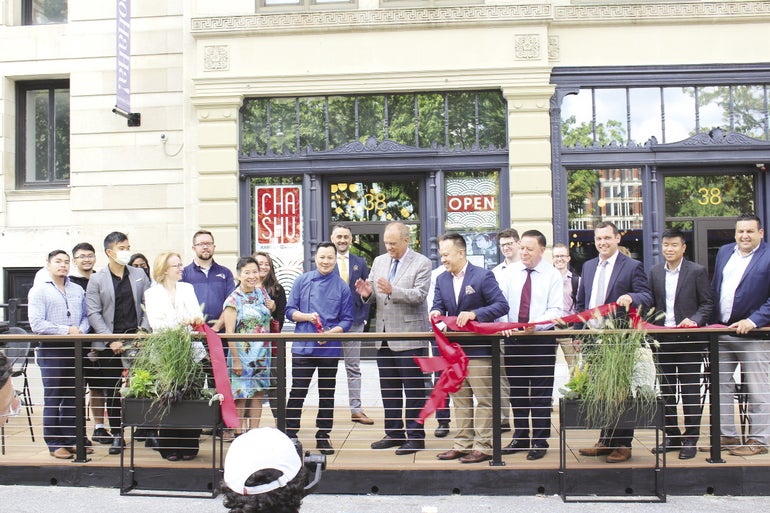While Central Massachusetts business leaders have seen substantial diversification among small business owners in the past three decades, the same cannot be said for those among the area’s highest-paid.
Get Instant Access to This Article
Subscribe to Worcester Business Journal and get immediate access to all of our subscriber-only content and much more.
- Critical Central Massachusetts business news updated daily.
- Immediate access to all subscriber-only content on our website.
- Bi-weekly print or digital editions of our award-winning publication.
- Special bonus issues like the WBJ Book of Lists.
- Exclusive ticket prize draws for our in-person events.
Click here to purchase a paywall bypass link for this article.
As the second-largest city in New England, Worcester, along with its surrounding cities and towns, is one of the most diverse regions in the state and home to thousands of businesses.
While Central Massachusetts business leaders have seen substantial diversification among small business owners in the past three decades, the same cannot be said for those among the area’s highest-paid. At the same time, the future holds promising potential as more funding, programs and initiatives aimed at bolstering owner diversity become more prevalent throughout the region.
“It's important because it helps bring kind of economic stability and opportunity and ladders for people from different backgrounds and populations, and that makes us, you know, stronger and a more vibrant community, both in the short and long, long run,” said Timothy Murray, president and CEO of the Worcester Regional Chamber of Commerce.
Stark executive wage-gap
No female CEO has been among Central Massachusetts' highest-paid CEOs in the last six years, per data tracked by WBJ. Since 2003, TJX Cos. executive chairman Carol Meyrowitz, former president and CEO of the Framingham behemoth, was the lone woman among the highest-earning for seven of the 11 years a woman made the list. The year with the most women ranked was 2011 when Laura Sen of Marlborough-based BJ's Wholesale Club, Susan Vogt of SeraCare Life Sciences in Milford, and Anna Chagnon of Bitstream in Marlborough joined her on the list.
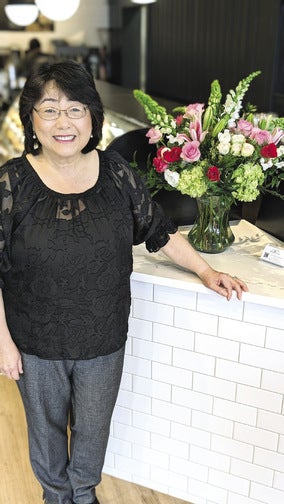
This lack of female representation was very similar within the region’s highest-paid executives for the time WBJ ranked them by total compensation from 1996 through 2014. For five of those 19 years, no woman made the list, and for 10 of those years, only one woman did, being either Meyrowitz or Sen (before becoming CEOs), Marita Zuraitis of Worcester-based The Hanover Insurance Group or Christine Komola of Framingham-based Staples Inc. The most female executives to be ranked on the list were two in the years 2013, 2014, and 2015.
These trends are not far off from what is reflected nationwide, as The New York Times reports only one woman made the publication’s 2024 list of top 10 U.S. chief executives by compensation actually paid in 2023: Safra Catz, CEO of Texas-based cloud technology company Oracle.
On a more specific, industry level, Central Mass. banking and retail sectors also have room for growth in diversifying leadership, Murray said.
In 2024, only two of the 25 largest banks (ranked by local deposits as of June 30, 2023) in Central Massachusetts are led by women. Female leadership is far more prevalent at the region’s credit unions where women head eight of the top 20 largest credit unions (ranked by assets as of March 31) with three women among the top 10.
The area’s real estate industry is lacking in diversity as well, Murray said, reflecting a country-wide diversity deficit. Though 65 percent of realtors are women, according to the National Association of Realtors, the U.S. still has a long way to go in diversifying racial representation. As previously reported by WBJ, a March 2023 study conducted by Initiative for a Competitive Inner City, a nonprofit based in Roxbury, and Grove Impact, a consulting firm based in Washington, D.C., found Black developers account for 0.4 percent of the real estate development sector while Hispanic developers represented only 0.16 percent.
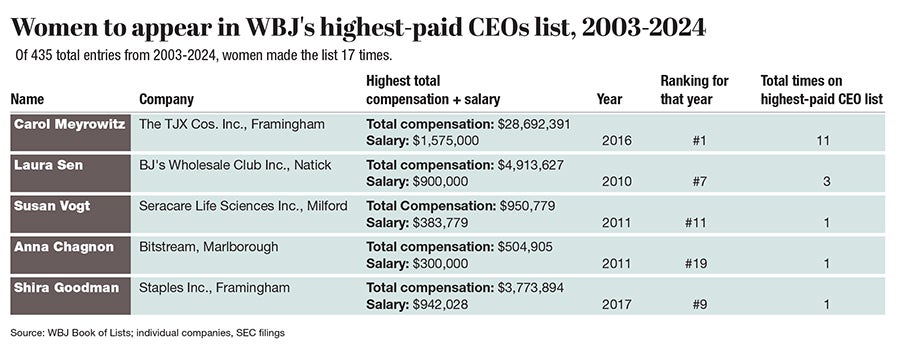
Funding, funding, funding
Within neighborhood businesses, Murray said the region has seen a dramatic increase in diversity, especially those in the retail, food, and hospitality industries, though there is still clear room for growth.
“Demographics is destiny, and Worcester historically has been an arrival place, and it's hopefully, more often than not, a welcoming place for new arrivals [and] new immigrants from all over the globe,” said Murray, the former Worcester mayor and state lieutenant governor.
When it comes to boosting diversity among Central Mass. business owners, Murray said the Worcester Business Resource Alliance has proved particularly beneficial. The alliance, formed in 2008, provides resources, tools, and services to the area’s entrepreneurs.
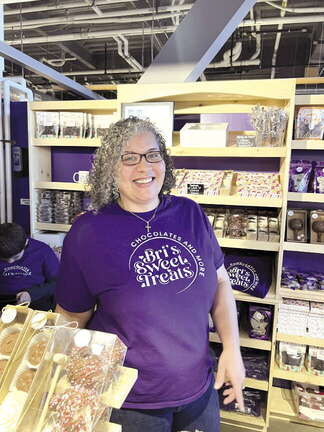
In 2022, the chamber partnered with Worcester-based Latin American Business Organization, designating LABO as an affiliate partner and affording its members access to the chamber’s programs, activities and services, an initiative Murray said has also helped boost business owner diversity.
Having programs and initiatives specifically for underserved populations including consultations, workshops, and networking opportunities, are integral to promoting the success of minority business owners, said LABO President Elizabeth Cruz. And these programs must have leaders who are subject-matter experts and culturally competent, especially when translation is needed.
Cruz said she’s witnessed an increase in entrepreneurs from South and Central America, especially those from El Salvador, the Dominican Republic, and Brazil.
In fact, Unic Pro Inc., a Shrewsbury-based commercial cleaning company which was led by Brazil-born Lilian Radke from 2010 to 2023, has been one of the top minority- and woman-owned companies when ranked by number of local employees since 2017 and 2016, respectively.
According to the Massachusetts nonprofit Unidos In Power, Massachusetts has more than 30,000 Latino-owned businesses. With the right support, Cruz said even more Latino-owned businesses will flourish.
“There is no reason why these Latin businesses should not succeed,” she said.
Cruz said state funding initiatives such as the state’s Urban Agenda Grant Program, aimed at boosting community economic development, are particularly beneficial to minority-owned businesses. For LABO, the program has helped fund its workshops and trainings for minority entrepreneurs.
Tailored support
The importance of programs tailored to promote diversity in entrepreneurship is championed by Racquel Knight, the Worcester region director of the Center for Women & Enterprise.
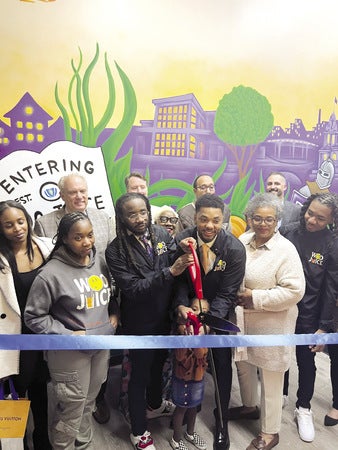
When Knight moved to Worcester 10 years ago, she said the region’s business ownership landscape was more homogenous than it is today. She’s witnessed a significant shift in demographics with more women, people of color, and immigrants stepping into entrepreneurship.
‘Now we're experiencing more vibrant diversification of industries led by these new demographics,” said Knight.
Knight credits StartUp Worcester, a collaboration between the Worcester chamber; the Venture Forum investor collective; and WorcLab, a downtown incubator, for helping open doors for her when she was starting her nonprofit For One Child Foundation.
“It's not a one-size-fits-all approach,” Knight said. “We need to collaborate more to ensure that the processes and structures are in place for women of color, people of color to access and benefit from these resources.
Driving economic innovation
When we have business owners who come from different backgrounds and cultures, they offer unique perspectives that drive innovation, Knight said.
“These perspectives often lead to the creation of products and services that cater to the needs of more varied customer bases, strengthening local markets, and this kind of innovation, it fuels economic growth and keeps communities competitive on a global scale,” she said.
Diversity is crucial for the economic benefits it brings and for the sense of social equity and justice it fosters within our communities, Knight said. And in the long term, continuing to promote diversity in the entrepreneurial ecosystem is going to prove essential to not only the sustainability of Central Massachusetts, but of the state as a whole.
“As we work to create a more inclusive business environment, we can strengthen the economy and ensure that everyone, regardless of background, has the opportunity to thrive,” Knight said.
Mica Kanner-Mascolo is a staff writer at Worcester Business Journal, who primarily covers the healthcare and diversity, equity, and inclusion industries.
